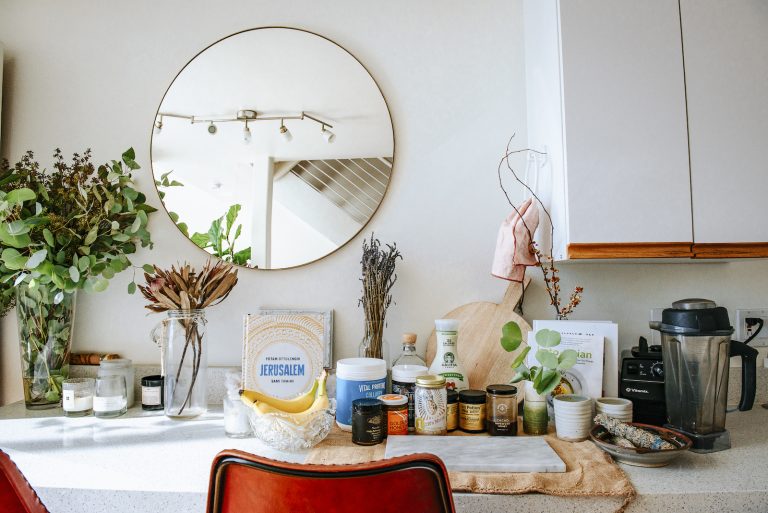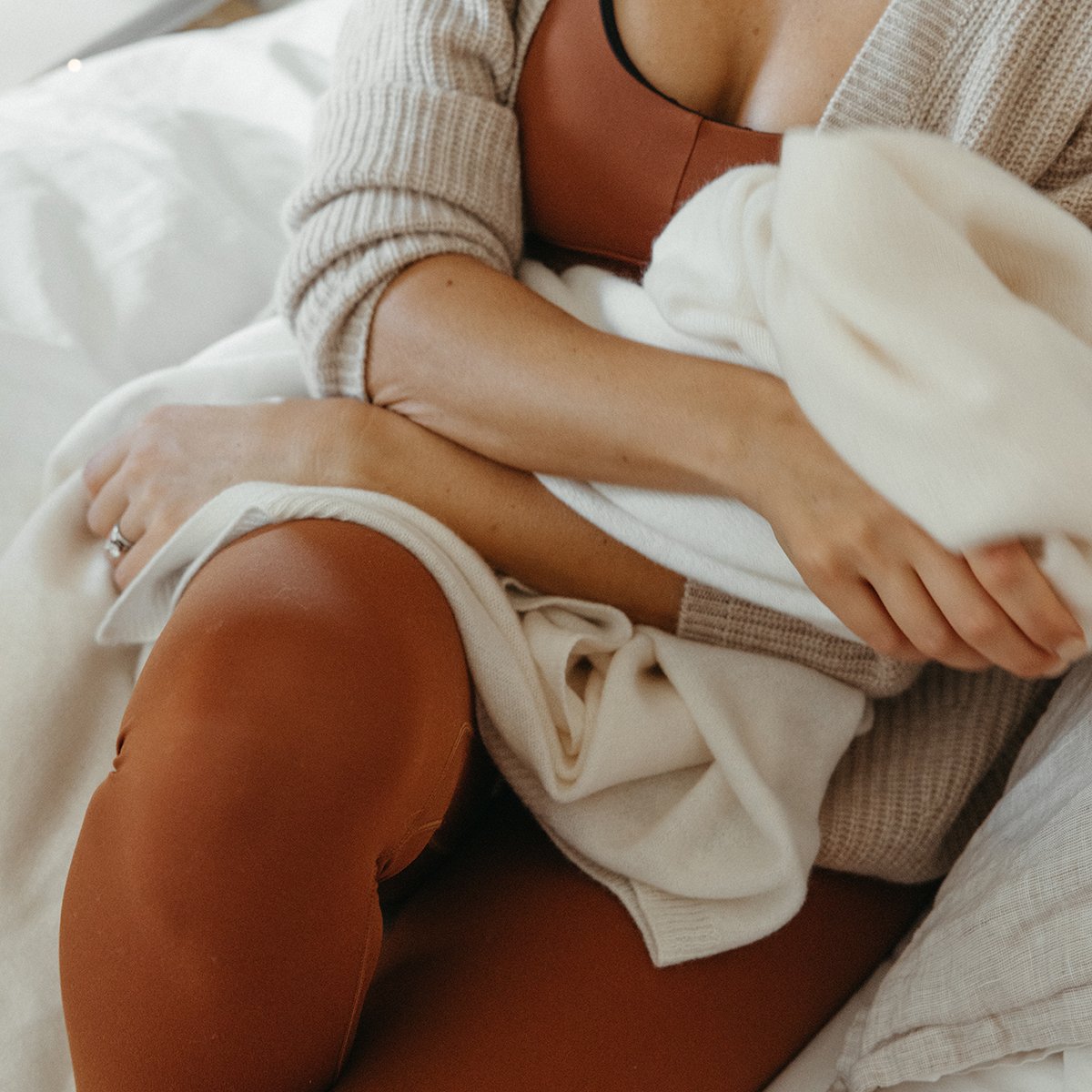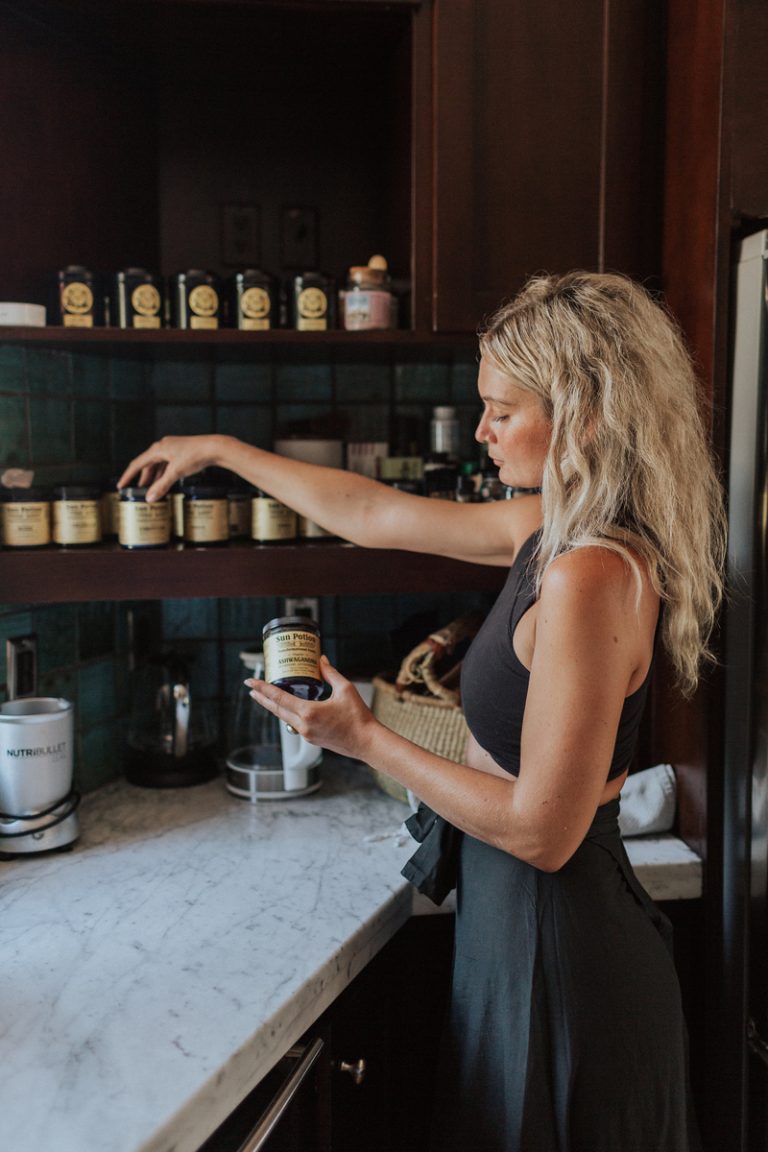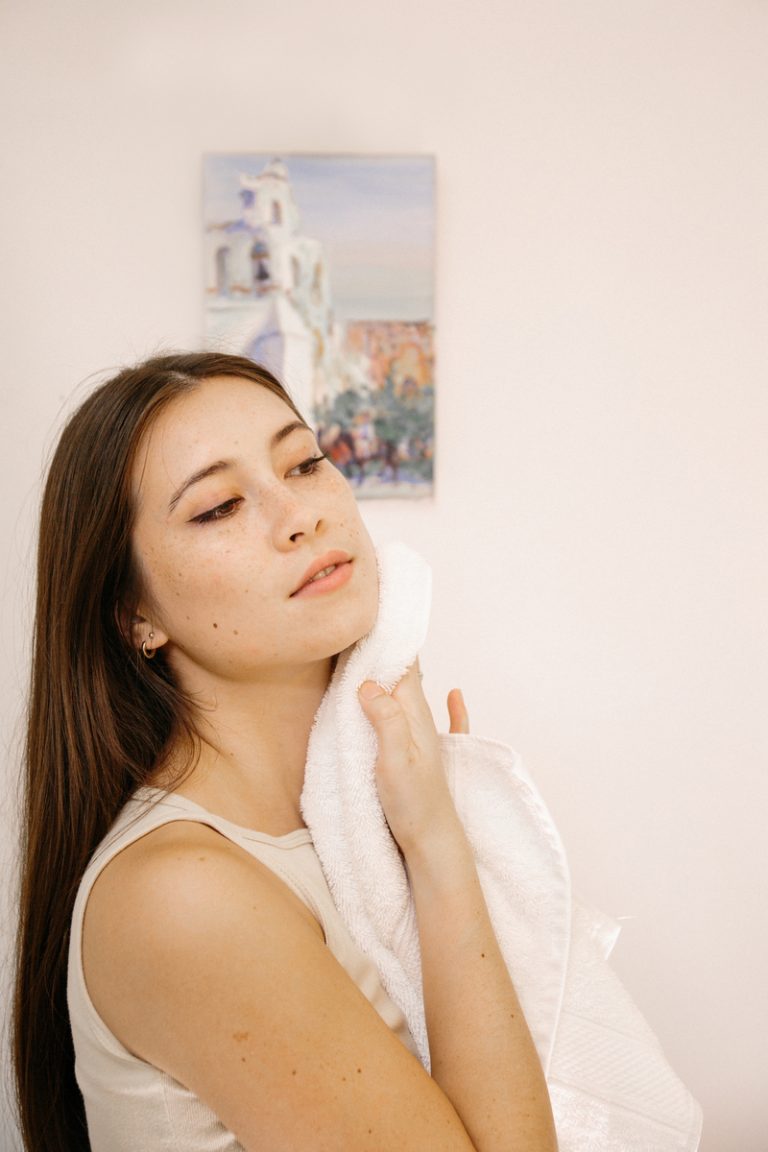
Your skin is speaking to you, but are you listening? Take salt as an example: when you’re snacking on chips, there’s a reason you wake up with puffy skin. (Cue the ice roller.) And if you’ve been drinking more coffee than water, that dehydration will show up on your skin. It’s true what they say—beauty from the inside out, y’all. With the evidence in front of us, it comes as no surprise that that certain time of the month—and all the fluctuating hormones that come with it—can wreak havoc on your face. Thankfully, the best supplements for hormonal acne are tried, true, and tested to ensure your skin gets the support it needs.
Hormonal acne is different than other breakouts, so it needs to be treated differently. There is a common misconception that hormonal acne stops in adulthood. But many women experience breakouts due to hormonal imbalances in their 20s and 30s and even during perimenopause. So don’t stress—after all, stress causes breakouts too.
Image above from our interview with Renee Bargh by Teal Thomsen

Subscribe
Sleep well.
Sign up to receive a FREE E-BOOK with 12 steps to your best sleep ever.
Thanks for Signing Up!
Oops!
Looks like you’re already signed up or your email address is invalid.
Oops!
Looks like you unsubscribed before click here to resubscribe.
An Expert’s Take on Hormonal Acne Supplements
“Hormonal acne itself can negatively impact self-esteem and the sequelae of acne, such as acne scarring or hyperpigmentation, can be long-lasting and difficult to treat,” says Xochitl Cubero Renteln, PA-C at Facile. And for most people, a combination of treatments can be effective, she told me. “Hormonal acne is complex and a multimodal approach is needed for this multifactorial problem.”
So how do you know when it’s time to take a supplement for hormonal acne? Combined with your dermatologist’s recommendations, Renteln says supplements can be an effective part of a hormonal acne-fighting routine.
Read on to discover the ins and outs of hormonal acne, including what hormone imbalances cause acne, how to get rid of it naturally, and which supplements actually work.
What triggers hormonal acne?
In general, acne breakouts are caused by excess androgen production. Androgens contribute to excess sebum production and clogged pores.
“Hormonal acne typically coincides with one’s menstrual cycle due to hormonal fluctuations,” says Renteln. “The stress hormone cortisol can also impact all of these hormones. Ultimately, these hormonal changes can lead to increased oil production and other skin changes that lead to acne.”
Other common triggers include:
- Hormonal conditions like PCOS
- Birth control
- Some medications
What are the signs of hormonal acne? How do you know your acne is hormonal?
“Acne occurring in women that are no longer in their teens is a common clue that acne is hormonal,” says Renteln. “Typically, women in their early 20s are impacted and it can last throughout their 30s, sometimes even through their 40s.”
And if you always notice cystic acne during your menstrual cycle — typically around the jawline and chin? Yup, that’s hormonal acne.
“Hormonal acne tends to occur around the mouth, chin, and jawline. The acne lesions tend to be cystic, meaning deep, tender, and difficult to extract or pop. They also have a tendency to occur in the same location around the same time month after month.”
Are there natural ways to balance hormones?
According to Renteln, “stress reduction and an overall healthy lifestyle that includes adequate sleep, regular exercise, and proper nutrition, can potentially help balance hormones. A combination of healthy lifestyle modifications, an effective skincare regimen, and medical intervention is ideal to properly manage hormones.”
What vitamins help fight hormonal acne?
- DIM is an anti-inflammatory nutrient found in cruciferous vegetables such as broccoli and cauliflower
- Vitamin D if you have a deficiency
- Oral zinc supplements can also support overall skin health
According to Renteln, any natural treatment or supplement is most effective in a one-two punch with dermatologist-approved medication. This might include:
- Topical or oral retinoids
- Steroid injections
- Birth control pills
- Antiandrogen therapy, such as spironolactone
The Best Vitamins and Supplements for Hormonal Acne




